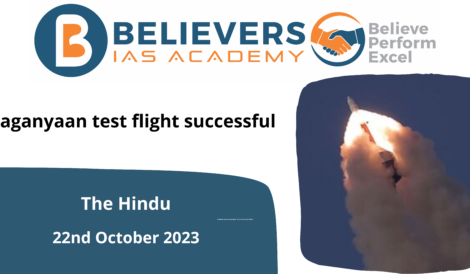Beyond Rote Learning: How to Develop Critical Thinking Skills for UPSC
The UPSC Civil Services Exam (CSE) is more than just a test of knowledge. It’s a rigorous evaluation of your analytical abilities, problem-solving skills, and, most importantly, your ability to think critically. While rote learning facts and figures hold some value, excelling in the UPSC demands a deeper approach – one that fosters critical thinking. Here’s how you, the aspiring civil servant, can move beyond rote memorization and develop the critical thinking muscle needed for UPSC success.
Why Critical Thinking Matters
- Analyzing Complex Issues: The UPSC exam throws a variety of complex issues your way, from poverty alleviation to national security. Critical thinking equips you to analyze these issues from multiple perspectives, identify root causes, and propose well-reasoned solutions.
- Forming Independent Opinions: The UPSC doesn’t seek blind followers; it seeks leaders with independent thought processes. Critical thinking empowers you to evaluate information objectively, form your own well-supported opinions, and present them convincingly.
- Thinking Outside the Box: The world’s problems are rarely one-dimensional. Critical thinking allows you to think creatively, explore unconventional solutions, and approach challenges with innovation.
Strategies to Sharpen Your Critical Thinking
- Question Everything: Don’t accept information at face value. Develop a healthy skepticism and ask questions like “Why?”, “How?”, and “From whose perspective?”.
- Embrace Diverse Viewpoints: Read widely from newspapers, journals, and academic publications that represent different ideologies. Expose yourself to opposing viewpoints and understand the reasoning behind them.
- Practice Active Reading: Don’t just skim through text. Annotate, underline key points, and actively engage with the material. Ask yourself questions about the author’s arguments and identify potential biases.
- Think Like a Problem Solver: Don’t just memorize solutions to past UPSC problems. Analyze case studies, identify the core challenges, and brainstorm potential solutions considering their feasibility and consequences.
- Engage in Meaningful Discussions: Discuss current affairs, social issues, and UPSC topics with peers and mentors. Defending your arguments and considering counter-arguments hones your critical thinking skills.
Beyond Strategies: Developing a Critical Thinking Mindset
- Embrace Curiosity: Cultivate a genuine curiosity about the world around you. Stay updated on current events and delve deeper into topics that pique your interest.
- Think for Yourself: Don’t be afraid to challenge conventional wisdom. Analyze information critically and form your own well-reasoned conclusions.
- Learn from Mistakes: Mistakes are inevitable, but they can be valuable learning experiences. Analyze your thought processes that led to the mistake and use them to improve your critical thinking in the future.
Remember, critical thinking is a skill that needs continuous honing. By incorporating these strategies into your UPSC preparation, you’ll move beyond rote learning and develop the analytical prowess that will not only help you ace the exam but also prepare you to become a future leader who can think critically and solve India’s most pressing challenges.



